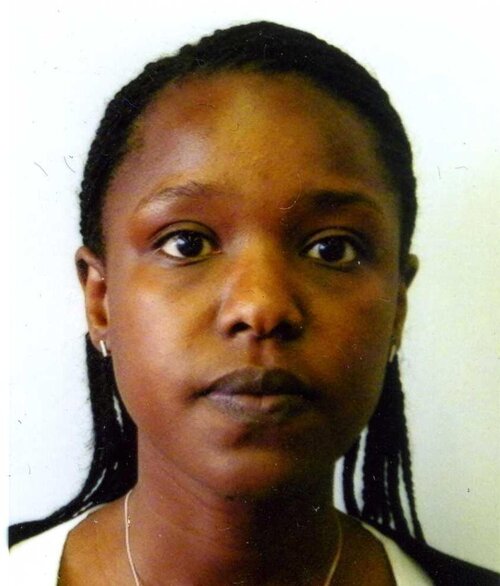Indigenous Rights are Human Rights Too
Sharifah Sekalala and Belinda Rawson

Indigenous peoples have been under perpetual attack. They have faced attempts by colonisers to displace them from their lands, they have been killed when they resisted and they have been exposed to deadly diseases which have decimated their populations. The COVID-19 pandemic presents unique existential and cultural threats to indigenous peoples because their economic, cultural and social rights have been so neglected in the past. A UN report on COVID-19 illustrates that poor housing, a lack of clean water, a higher rate of underlying health issues, and insufficient access to health care and other essential services are all factors which make indigenous peoples more susceptible to becoming infected with the virus. Price gouging in remote communities, unemployment and reliance on social security make it difficult for many individuals to finance essential supplies such as soap and disinfectant, or stockpile food reserves for long periods in order to self-isolate and practice social distancing. Where non-indigenous or non-culturally specific healthcare is an option, indigenous peoples tend to avoid accessing those services because they suffer from stigma and discrimination. The effects of COVID-19 are quickly reverberating through indigenous populations globally. The Navajo Nation, in the US with approximately 173,000 residents, has faced a disproportionate impact from COVID-19 and is contending with some of the worst hit areas for the highest per capita infection rate in the US. In Brazil, which currently has the second highest infection rate globally, many indigenous populations in the Amazon are being put at risk through coming into contact with illegal miners and loggers who are increasingly targeting them.

Even before the global health crisis, many indigenous peoples were already facing worse health outcomes than their non-indigenous counterparts. Human rights provide a universal framework for advancing public and global health with justice, transforming moral imperatives into legal entitlements in State responses to COVID-19. The right to health is particularly important. This is due to its explicit protection of individual and collective rights to accessible and affordable health care and to the underlying determinants of health which would necessitate State focus on indigenous peoples’ social security, food, housing and education in the context of social isolation measures, and the fulfilment of international obligations of cooperation and assistance. The historic injustices to indigenous peoples illustrate the indivisible and interdependent nature of human rights.
Not all government responses to COVID-19 have taken into account the unique vulnerabilities of indigenous peoples. For example, the Australian Government’s immediate COVID-19 response to protect Aboriginal and Torres Strait Islander communities included making $123 million (AUD) available ‘over the next two financial years’ to assist indigenous businesses and communities affected by COVID-19. However, given the rapidly evolving health crisis and the critical threat it represents, this financial commitment is likely to be of little comfort to indigenous communities as it is insufficient to address the plethora of structural issues being faced by them which precipitate poor health outcomes. At the very least funding should prioritise crucial messages, immediate health care and other essential supply needs as well as health security. In contrast, Canada’s Indigenous Community Support Fund is providing $305 million (CAD) to address immediate needs in First Nations, Inuit and Métis communities, funding which is targeted, transparent and which ‘will flow as quickly as possible through existing agreements’ to such communities. This amount adds to $500 million (CAD) provided to provinces and territories and an additional to $130 million (CAD) provided for urgent support to address immediate health care, hygiene, economic, transportation and food supply needs in the northern territories. This financial support has also been coupled with culturally sensitive messaging in order to gain greater compliance from indigenous communities. For instance, Canada’s Yukon territory have been asked to keep ‘one caribou’s length apart’ or keep ‘the distance of four ravens’ from each other in order to prevent transmission of the virus.
The US, Latin America, and Australia, still lack a specific COVID-19 response for indigenous peoples that would be focused on realising their fundamental economic, social and cultural rights. While there has been some national recognition of the significant vulnerabilities faced by indigenous communities, measures are still inadequate because they have not dealt with the specific need to address the underlying determinants of health such as overcrowding, access to health care and food shortages which ultimately worsen faced hardships and exacerbate conditions in which COVID-19 will thrive.
Where resources allow, governments should take targeted measures to mitigate the social, economic and cultural impact of the pandemic on their indigenous populations. State obligations to realise human rights must be at the core of crisis responses and this is particularly important in the context of protecting indigenous peoples who are especially vulnerable to infectious diseases such as COVID-19. As well as improving conditions which underly the social determinants of health, respectful recognition of intergenerational trauma from institutionalised discriminatory practices needs to underscore crisis responses and the development of more sustainable solutions in the future. The direct experiences of indigenous populations around the world vary but many indigenous communities are going to be disproportionately affected by COVID-19 due to living in conditions that make contagion more likely. Instead of being complicit in the perpetuation of historical injustices by doing very little at all to address entrenched inequalities and resulting disparities in health outcomes, governments now have an opportunity to transform their own narrative, by doing whatever they can – and whatever it takes – to protect and preserve traditional cultures that uniquely shape national identities from the COVID-19 threat.
Belinda Rawson is an Australian qualified Solicitor currently working as an Associate Tutor and Research Assistant at The University of Warwick. Her present research interests include the human rights implications of migration and COVID-19 health crisis globally.
Sharifah Sekalala is an Associate Professor at the University of Warwick whose research focuses on global health law and equity. She has published extensively on human rights and inequality in global health. Twitter: @sharifahsekalala

**This work was supported by the Economic and Social Research Council Warwick IAA grant ES/T502054/1.




